For reviewers
Information for reviewers
1. Peer review process (double-blind)
Submission of a paper to the journal does not guarantee approval. Submissions undergo an editorial process that takes place in several phases. All papers undergo an initial screening by the Editorial Committee, which determines whether they are relevant for publication. If the paper meets the thematic and formal requirements of the journal, it will be sent for peer review by experts in your field, preferably independent of the journal, for an in-depth academic evaluation. If the expert insights of the referees are favorable, the production process begins in order of submission.
Peers are experts in their area of knowledge, chosen by the journal or suggested by the researchers, who give written insights on the relevance and validity of the content to improve the paper. Reviewers must guarantee the confidentiality of the information reviewed and, therefore, may not copy or use data or important aspects of its content. Their evaluations must be clear and substantiated. In case of suspected misconduct on the part of the author(s), they must inform the editor confidentially. During the review, peers will report any conflicts of interest, advise the editor and, if necessary, withdraw from the process.
The evaluation process is double blind to avoid any conflict of interest. The authors do not know the identity of the reviewer (anonymity is essential) and, likewise, the reviewers do not know the identity of the authors.
Peers are selected by the Editorial Committee and their evaluation must follow the established format. Although authors may suggest referees, the final decision on referees will be made by the Editorial Committee of the journal.
The reviewers will look for the following aspects:
- Appropriateness of title, objectives, hypothesis, method, results, and discussion.
- The theoretical background is relevant.
- Quality writing.
- References are up to date and relevant.
- Follow APA citation guidelines.
- The research meets conceptual novelty, and its contributions are relevant to the field of knowledge.
If the recommendations of the two reviewers clearly differ, it is up to the Editorial Committee to make the final decision. The results of the academic peer review process will be final in all cases.
The result of the evaluation may be: 1) 1) may be published without modifications; 2) may be published with modifications of form; 3) may be published with modifications of content; 4) may be published with modifications of form and content; 5) corrections of form and content must be submitted for re-evaluation; and 6) may not be published.
2. Ethics issues
In compliance with its main objective of contributing to quality knowledge, and in accordance with the Committee on Publication Ethics (COPE), Psicosespacios adheres to the Principles of Transparency and Best Practices in Academic Publishing and to the ethical standards and conflict resolution procedures that may arise in the process.
Therefore, the journal's editorial team will ensure that all players (editors, reviewers, and authors) abide by ethical standards throughout the editorial process.
Peer reviewers are committed to
- Declare conflicts of interest or disqualifications.
- Strictly adhere to the policies of the journal's evaluation process.
- Deliver and submit evaluations on time.
- Perform a thorough evaluation, given the level of experience of the reviewer.
- Respect confidentiality of the information



